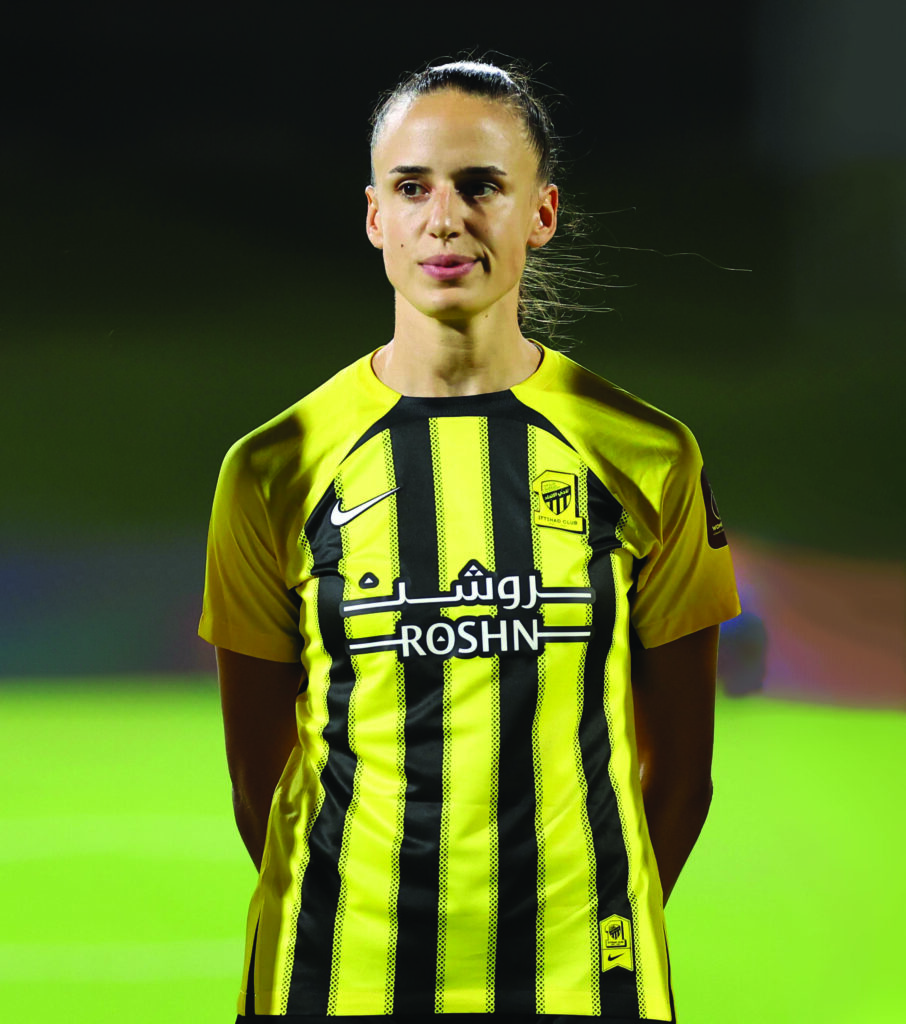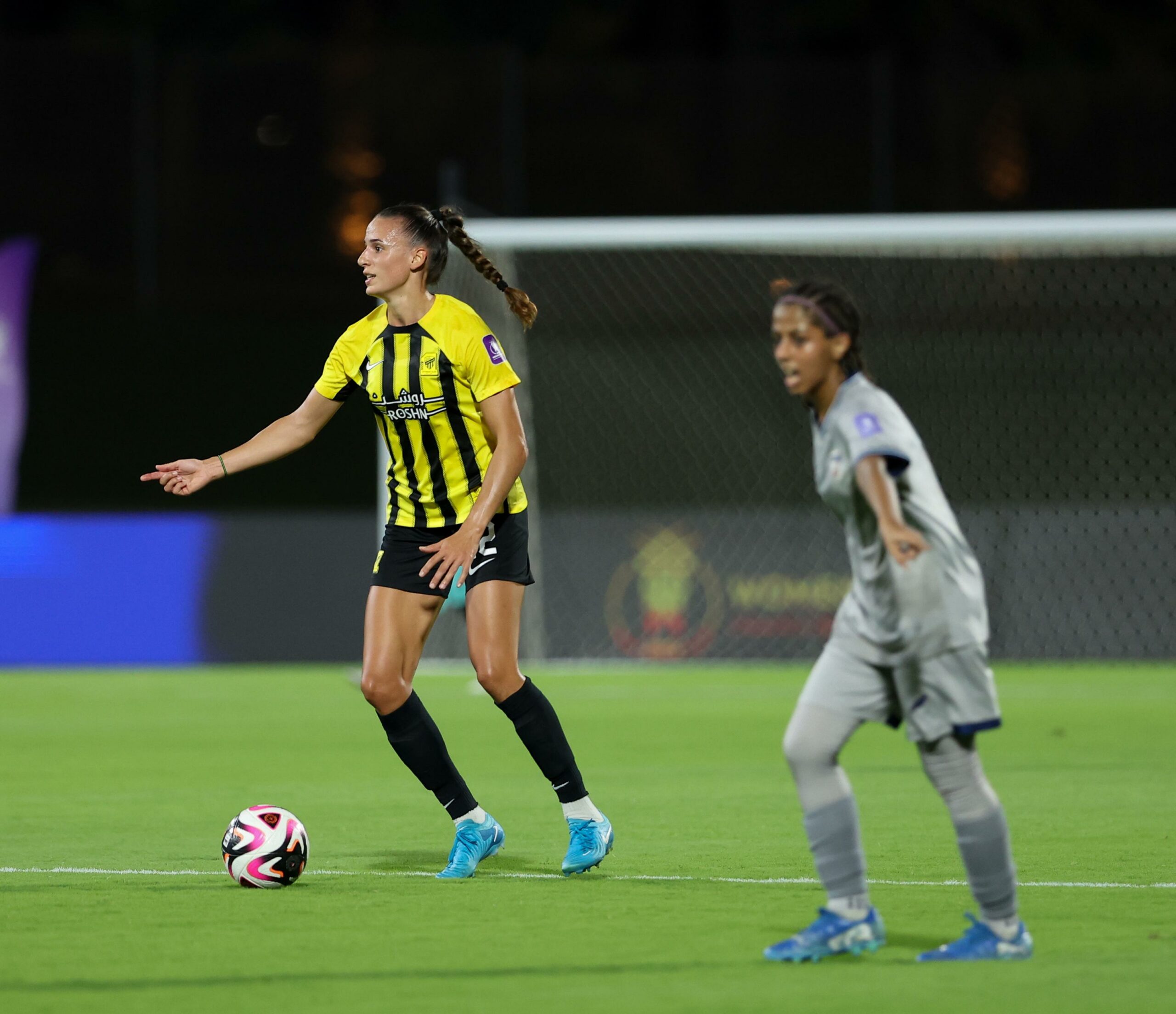One of the best defenders on the African continent, Nigerian footballer ASHLEIGH PLUMPTRE, on her move to Saudi Arabia, where she is helping grow the game for young women.
Ashleigh Plumptre has never taken the conventional route. Born and raised in Leicester, England, she decided to play international football for Nigeria, eligible through a paternal grandfather from Lagos.
And last year she gave up playing in the English Women’s Super League to move to the fledgling league in Saudi Arabia, where she turns out for Al-Ittihad from Jeddah.
Both, she says, have been voyages of discovery and purposeful paths she has chosen as she drops another bombshell: “I don’t love football enough just to play it.”
That is bold coming from a player who has been to the very top of the game, featured at a FIFA World Cup and viewed as one of the best defenders on the African continent.
Loading...
But Plumptre has always been searching for more from the game than what the pitch can offer. For the 26-year-old, cultural interactions and gaining a better understanding of the world have been equally, if not more, important.

“I am still really competitive and I want to grow as a player and as a person, but the fulfilling part for me is the fact that you feel like you’re having a genuine impact on people’s lives here,” Plumptre tells FORBES AFRICA of her move to Saudi Arabia, where the women’s competition was only formed three years ago.
“Take football away, some of these girls, their experiences, whether it’s in school or as families, are very different from the way I was brought up. We can have conversations that I would never have if I was anywhere else.
“It’s the same reason I decided to play for Nigeria. It was a journey of discovering my heritage and knowing about a different culture and that, for me, is the kind of thing that will stay with you when you stop playing.”
There may have been concerns that moving from one of the best leagues in the world to one that is still finding its feet as a competition may have hurt her international ambitions with the Super Falcons, but she does not believe this is the case.
“No, not at all,” she says. “My Nigeria coach (Randy Waldrum) has just left now, but when I joined Ittihad and I told him about this move, his only question was, ‘who is your coach’.
“It was not like he was going to change my mind or anything, that was made up about the move, but I told him (at the time it was former United States national team player Kelly Lindsey) and he said, ‘oh, she is the best captain I ever had’ and that she had played for him.
“He understood, based on my personality, why I decided to move to Saudi. Obviously, we have a different national team coach now (Justin Madugu), but he’s been checking up on me and making sure I’m okay and recovering well (from injury).”
The society in Saudi Arabia has become far more open in recent years and opportunities for girls to play the game have seen some 80,000 sign up to play school soccer, she says, something that would have been unthinkable just a few years ago.
Plumptre is enjoying her role as a mentor and someone who is helping to grow the game in the country.
“The international players all live in a compound around other families and there are a lot of boys and girls that play on a little turf pitch,” she says. “There are girls, probably about seven or eight years old, who are playing with the boys. They come to our games, and they want to participate.
“I have this thirst for wanting to grow and learn about people, and ultimately, I’m given that opportunity here. I guess I’m a ‘player mom’ sometimes. But I like that and it puts me in situations where I have to learn and always ask questions.
“I’ve got three younger siblings and I always say to them, ‘in life, we’re so accustomed to just being told what to think, whereas we don’t put ourselves in situations to actually be around different people and ask ‘why?’, rather than just already having this pre-conditioned opinion on something based on what we’re told’. “I’ll put myself in the situation to learn, and keep asking, ‘why?’, without judgment. Every day is a learning day for me.”
Loading...
